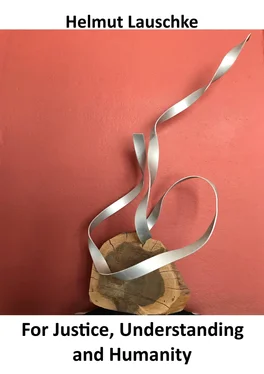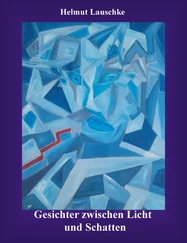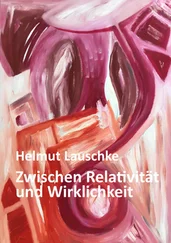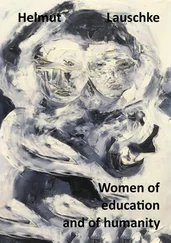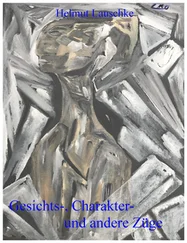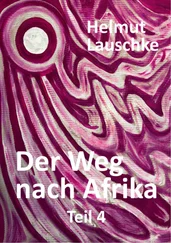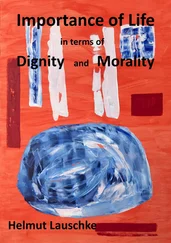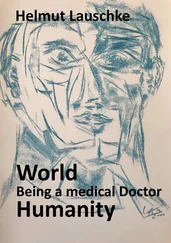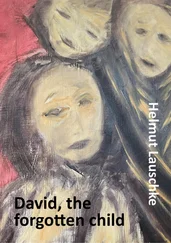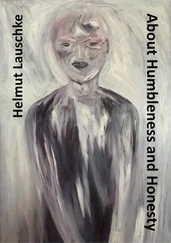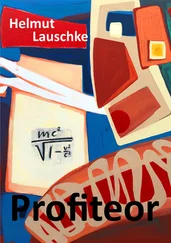The faces of the participants looked serious, but not hopeless. It began a new era with a new atmosphere of a spontaneous and reality-related team spirit. It was the team spirit of which the lean white matron had spoken in the past that had become a stillbirth due to the intrigues and traps of Dr Hutman who was ‘the lieutenant of the devil’. The lack of antibiotics, of the TB and malaria drugs and other patient-related problems were discussed and the new superintendent promised to contact after the meeting the central pharmacy in Windhoek to get the reason for the delay of delivery. With this clear statement the meeting had ended and I got the impression that the participants left the room with concern, but also with a spark of hope.
After the meeting Dr Nestor asked me, if I had an idea to get new doctors for the hospital, since the workload was too much for the few doctors and the replacement of the army doctors had finally ended. I thought of the situation in West Germany where a glut of doctors did exist and young doctors could be interested to work in Africa gaining a lot of experiences in a short period of time. The suggestion attracted Dr Nestor that I drew the text for a small advertisement in the German ‘Ärzteblatt’ which I translated. Nestor was excited and told that he will discuss the matter with the medical director showing him the draft. The text was approved that the letter were typed and sent at the same day to Germany together with a covering letter of the medical director.
I was busy with a difficult operation what was a multiple thigh bone fracture. The sweat dripped from my face. It kept a student nurse busy to dry my face in short intervals when Dr Witthuhn looked from the washing passage into the theatre and congratulated me for the brilliant idea and the text design for the advertisement. “Your idea was fantastic. I have sent the advertisement already to Germany,” he said in a state of excitement. I felt a kind of relief on the medical director. It was the reflection on the advertisement and the response with the theoretical possibilities that I clamped my thumb when I put the holding forceps onto the bone.
Dr Witthuhn disappeared and his sonorous voice echoed through the corridor when he spoke to some nurses. Dr Lizette did the anaesthetics and was quiet. She was obviously amazed at the fact that a black person had become the superintendent of the hospital, though she appreciated Nestor as a sympathetic colleague. The theatre nurses praised the change and expressed the hope that the hospital would see better times in the near future. “The improvement will not come overnight”, I said to slow down their expectations. The nurses replied that they trusted both the new superintendent and the medical director, since they were familiar with the needs of the people. There was a gleaming in their eyes as they would see the coming of the new era with the ‘new vessel with the black masts’.
I was soaked in sweat when I put the patient with the Philippine colleague and some nurses from the operating table on the trolley where Dr Lizette pulled out the breathing tube from the patient’s throat and put the oxygen mask on his face. I removed the wet operating shirt in the dressing room, dried the skin over the head, neck and chest and put on a dry shirt. I went to the small tea room and prepared a cup of tea. Lizette was silent like speechless to the fact that a black person became the superintendent. She had refilled her cup with tea and stirred the teaspoon of sugar in when she said that the clock in Oshakati goes faster than in South Africa. I added that I believed this as well that the clocks close to the Angolan border were ahead compared with the clocks in the southern parts of the country far from the war. Lizette felt the atmospheric change in the theatre and sipped of the tea. She was confronted with the phenomenon of a great surprise by the change with its historic dimensions and submitted herself to the self-control of a higher alert. Lizette took her husband into her consideration who was the psychologist in the uniform of the SADF. It was his task to treat young soldiers who had sleepless nights by depressions and nightmares or other disorders because of reservations according to their education and religion. He as psychologist had to bring them back in line to follow the strict military orders with shooting a person dead.
The next patient was put on the operating table in theatre 2 for revision of the below-knee stump where the bone had perforated the soft tissue and had to be shortened. Dr Lizette induced the anaesthesia and the Philippine colleague and I dried our hands with sheets of blotting paper in the washing passage when a power cut occurred. A nurse pulled the operating coats in the twilight over the surgeons who had difficulties to put the hands into the poorly powdered operating gloves. We took the seats on two stools in the operating room and waited for the power return. We did it without a word of complaint, since this interruption was a common incident. The anaesthetic nurse pulled up the blinds to allow the daylight into the theatre room and the instrumenting nurse put the instruments on the instument table back in place. Lizette was not familiar with this kind of incident and asked with an undertone of resignation how one could work under these circumstances.
The question remained unanswered, since everybody knew that the work had to be done and the disturbances had to be taken into account. The people in need dictated not to give up. Everyone followed silently his or her thoughts and expectations in the waiting period which was longer than usual. So I thought of the young colleague who had flown back to South Africa and had arrived on the airbase ‘Waterkloof’ next to Pretoria where he was welcomed and embraced by his parents and brothers and sisters who thanked God that the son returned well and unhurt. I asked myself what the young colleague would tell about the north and its people and his work at Oshakati hospital. Could this colleague draw a realistic picture of the heroes and the ‘rats’ and of the sinking apartheid vessel, and if he could transmit the imagination of the coming new vessel with the black masts. I had put the young colleague like Dr van der Merwe at a good place in my memory, since both were good human beings and dedicated doctors who were devoted to their work that patients and nurses trusted their humanity and skills.
The light went on and Dr Lizette said spontaneously ‘thanks’. The instrumenting nurse gave the scalpel and I incised the skin around the perforating shin bone stump in the fish mouth shape and cut off the muscle attachments from the distal ends of both the shin and calfbone stumps. I shortened the stumps and smoothed the edges with the bone file and put the skin-muscle flaps over the stump ends and fixed the soft tissue coat with some stitches. The shortened below-knee stump was long enough to be fitted with a prosthesis after the wound has healed.
After the operation, the Philippine colleague left the theatre for the outpatient department. He went to the dressing room and changed his clothes, while I took a short break when Lizette entered the small tea room for a cup of tea. Her speech was back when she said that she was amazed how fast things were changing what was unforeseeable one week ago. I agreed and tried to explain the situation with the people who had suffered under the segregation by putting them down to beings without the basic human rights, and under the war situation so much. Lizette asked with great concern regarding the future: “Do you think the blacks will do it better?”
It was a question where the answer was hardly to predict. I said: “One should hope, but more worse like now is impossible. The people are tired and sick, many have lost their relatives or lay poor and broken in front of their huts or are deceased by starvation, sickness and maltreatment. A generation will pass before the wounds can heal.” Features of great concern was on her face. It was readable from her moving eyes that Lizette did not trust the blacks, if they come to power. “The colour will change, but the blacks will do nothing better for the people when they come to power”, she said. She saw black in the future before the black future with the black crew has begun. She saw even more black than I could imagine who had the sandy tones with the various grey shades in mind where biracial children with beautiful faces were put from a certain dark tone onwards and despite their intelligence and charm behind colour bars to a life of desperation and privation. Dr Lizette was white, but of an African origin that I was not.
Читать дальше
